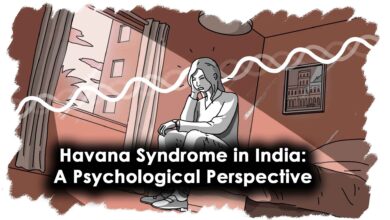Understanding Cotard Syndrome: The Delusion of Being Dead


In the vast landscape of mental disorders, Cotard Syndrome stands out as a rare and intriguing condition. Named after the French neurologist Jules Cotard, this syndrome, also known as Cotard’s Delusion or Walking Corpse Syndrome, is characterized by a person firmly believing that they are already dead, do not exist, or have lost their organs or body parts. This blog aims to shed light on the fascinating aspects of Cotard Syndrome, including its symptoms, potential causes, and available treatments.
Symptoms and Manifestations
Cotard Syndrome manifests itself through a range of symptoms that vary in intensity from mild to severe. Individuals affected by this condition may experience one or more of the following:
1. Nihilistic Delusions
The most distinctive symptom of Cotard Syndrome is the nihilistic delusion, wherein the person believes they are dead or no longer exist. They may express a feeling of emptiness, being soulless, or being trapped in a lifeless body.
2. Body-Related Delusions
Some individuals with Cotard Syndrome may believe they are missing body parts, such as their brain, heart, or internal organs. They may express feelings of being hollow or having a rotting or decaying body.
3. Social Isolation and Withdrawal
Due to their delusions, people with Cotard Syndrome may isolate themselves from social interactions, finding it difficult to connect with others who they perceive as living beings. This withdrawal can exacerbate their feelings of detachment and reinforce their belief in their non-existence.
4. Depressive Symptoms
Cotard Syndrome is often accompanied by symptoms of depression, including sadness, apathy, and loss of interest in previously enjoyed activities. This depressive state can be challenging to manage and may require therapeutic intervention.
Potential Causes and Risk Factors
The exact causes of Cotard Syndrome remain unknown, but several factors have been suggested as possible contributors to its development:
1. Brain Abnormalities
Neurological studies have indicated that Cotard Syndrome may be associated with abnormalities in certain brain regions, such as the frontal and parietal lobes. These abnormalities can disrupt the perception of self and reality, leading to the delusional beliefs seen in Cotard Syndrome.
2. Underlying Mental Health Conditions
Cotard Syndrome has been observed in individuals with a history of psychiatric disorders, such as depression, schizophrenia, or bipolar disorder. It is hypothesized that these pre-existing conditions may create a vulnerability for developing Cotard Syndrome.
3. Traumatic Brain Injury
In some cases, Cotard Syndrome has been linked to traumatic brain injuries. Severe head trauma can disrupt neural pathways and alter brain functioning, potentially leading to the development of this syndrome.
Treatment Approaches
Addressing Cotard Syndrome requires a comprehensive approach involving psychological intervention, medication management, and supportive care:
1. Psychotherapy
Cognitive-behavioral therapy (CBT) and supportive therapy can help individuals challenge and modify their delusional beliefs. Therapists work to establish a therapeutic alliance, gradually shifting the individual’s perspective and providing coping mechanisms for managing their symptoms.
2. Medication
Psychotropic medications, such as antipsychotics and antidepressants, may be prescribed to alleviate associated symptoms like depression, anxiety, or psychosis. However, there is no specific medication designed solely for Cotard Syndrome.
3. Supportive Care
Creating a supportive environment that encourages social interaction and engagement can help individuals with Cotard Syndrome feel connected and grounded in reality. Peer support groups and community services can also provide valuable assistance.
Conclusion
Cotard Syndrome remains a puzzling and rare psychiatric disorder that challenges our understanding of self-perception and reality. While its causes are not yet fully elucidated, treatment options that combine therapy, medication, and support can help individuals manage their symptoms and improve their quality of life. Continued research into the underlying mechanisms of Cotard Syndrome holds the promise of unlocking more effective interventions and providing further insight into the complexities of the human mind.







